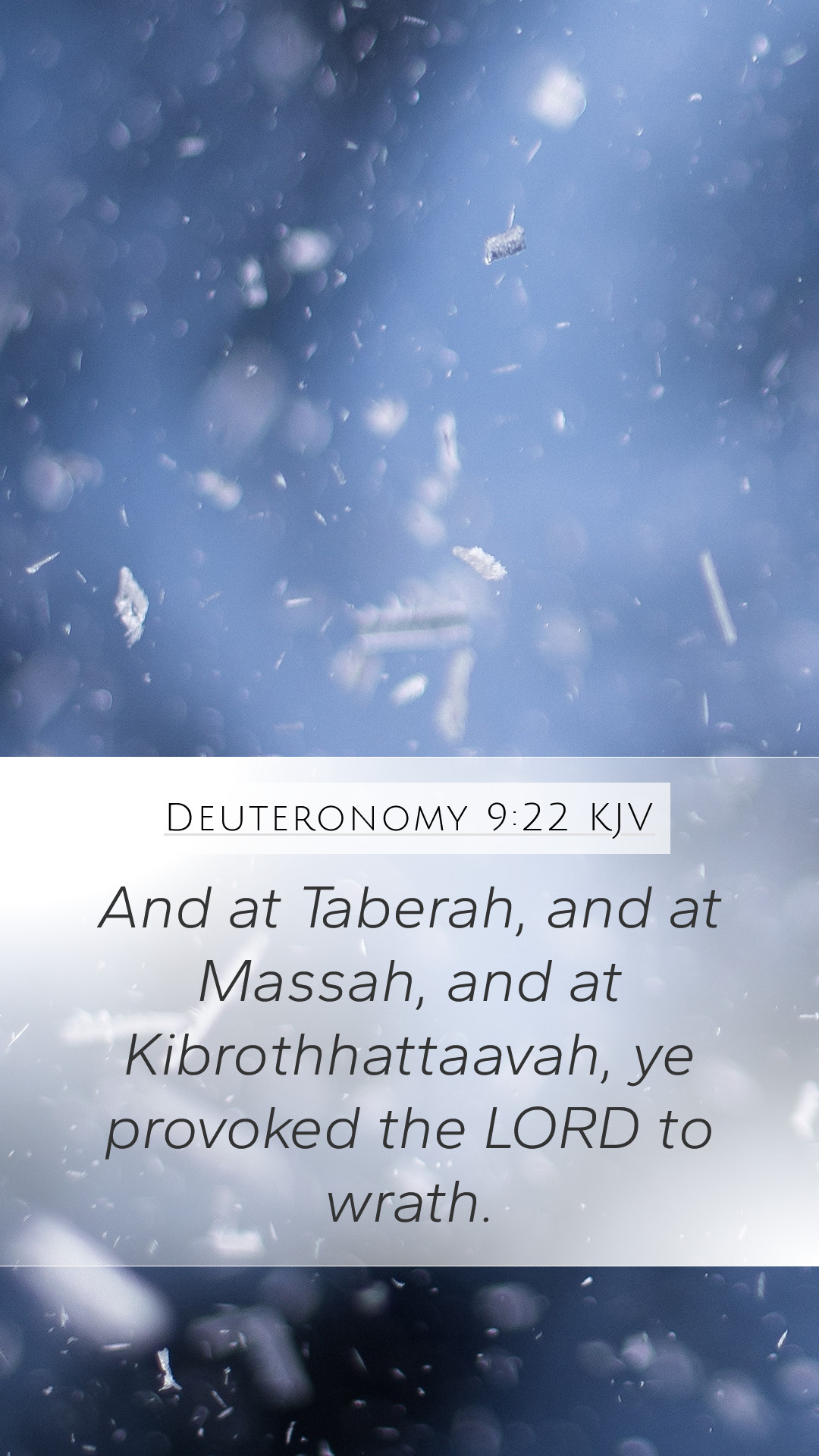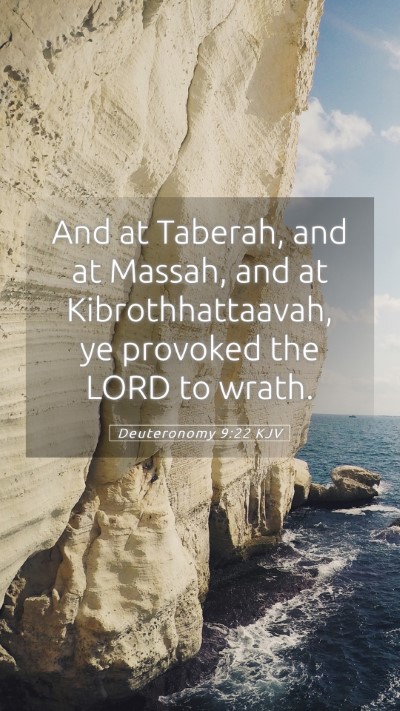Understanding Deuteronomy 9:22: A Comprehensive Bible Verse Commentary
Deuteronomy 9:22 states:
"And at Taberah, and at Massah, and at Kibroth-hattaavah, ye provoked the Lord to wrath."
Overview of Deuteronomy 9:22
This verse is part of Moses' address to the Israelites, reminding them of their past transgressions and the consequent anger of the Lord. The mention of Taberah, Massah, and Kibroth-hattaavah serves to highlight specific instances where the people rebelled against God, leading to His displeasure.
Historical Context
Understanding the historical context of this verse is essential for depth:
-
Taberah: The name means "burning," and refers to an event where the Israelites complained about their hardships, leading to divine wrath and the consuming of some among them (Numbers 11:1).
-
Massah: This signifies "testing" and is associated with the Israelites questioning God's presence and provision, particularly regarding water (Exodus 17:7).
-
Kibroth-hattaavah: Translated as "graves of craving," this location highlights the Israelites' longing for meat, resulting in God's judgement for their ingratitude (Numbers 11:34).
Commentary Insights
Insights from reputable public domain commentaries provide a deeper understanding of the passage:
Matthew Henry's Commentary
Henry emphasizes that these events signify the stubbornness of the Israelites. Each location represents a different rebellion against God, showcasing their forgetfulness of His providence and grace.
Albert Barnes' Notes
Barnes notes that the specific mention of these incidents serves as a stark reminder to the Israelites about their past misdoings. He conveys that acknowledging past sins is crucial for spiritual growth and for seeking forgiveness from God.
Adam Clarke's Commentary
Clarke elaborates on the consequences of rebellion against God. He points out that the mention of God's wrath is a solemn reminder of the seriousness of sin and the importance of obedience to divine commands.
Lessons and Applications
This verse offers vital lessons for believers today:
- Recognizing Divine Wrath: Understanding the nature of God's anger towards sin encourages believers not to take His grace for granted.
- Importance of Remembrance: Reflecting on historical instances of rebellion can help modern believers avoid similar pitfalls.
- Call to Obedience: The scriptures call us to be faithful and obedient to God's commands, as exemplified by the Israelites' failures.
Cross References
This verse connects with several others in Scripture that discuss the consequences of rebellion against God:
- Exodus 16:2-3: The Israelites' complaints about lack of food and divine provision.
- Numbers 11:4-6: A detailed account of the craving for meat and the resulting divine judgement.
- Hebrews 3:8-10: A warning against hardening hearts and turning away from God.
Final Thoughts
In summary, Deuteronomy 9:22 encapsulates profound truths about human nature—rebellion, forgetfulness of God's goodness, and the need for accountability. For those seeking to understand the deeper meanings of Bible verses, this passage emphasizes the significance of learning from past mistakes in the context of faith and obedience.


